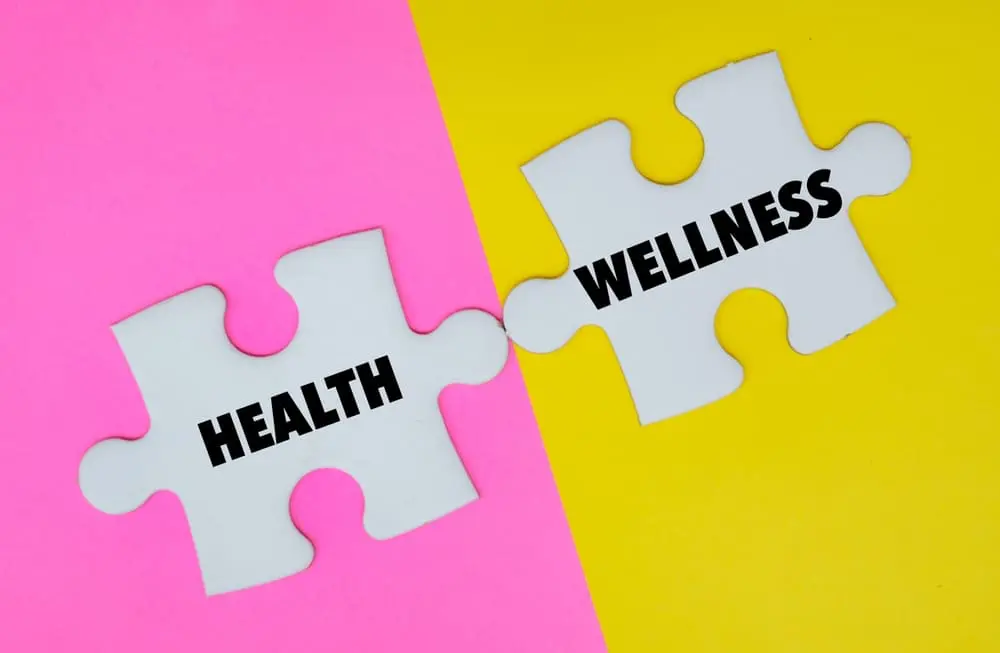The Ripple Effect – How Becoming Debt-Free Can Positively Impact Your Life. Find Out More In Our Latest Article!
THIS ARTICLE MAY CONTAIN AFFILIATE LINKS, MEANING I GET A COMMISSION IF YOU DECIDE TO MAKE A PURCHASE THROUGH MY LINKS AT NO COST TO YOU. PLEASE READ MY AFFILIATE DISCLOSURE FOR MORE INFO.
DON’T HAVE TIME TO READ THE FULL ARTICLE. HERE’S WHAT YOU ARE MISSING.
As someone who has recently become debt-free, I can attest to its profound impact on my life.
It’s not just about financial freedom but also the ripple effect that it has had on other areas of my life.
In this article, I will explore how becoming debt-free can positively impact your life, both financially and personally.
Defining financial freedom is the first step to understanding the ripple effect of becoming debt-free.
It means controlling your finances, meeting your obligations, and having enough savings to cover unexpected expenses.
But financial freedom is just the beginning. Eliminating debt can significantly impact mental health, personal relationships, career opportunities, and long-term economic stability.
The following sections will explore debt elimination’s psychological and personal benefits and practical advantages.
Defining Financial Freedom

As I explore the concept of becoming debt-free, it’s essential to understand what financial freedom truly means. Financial freedom is having enough income to cover all expenses without debt or economic stress. It’s about controlling your finances and making choices that align with your goals and values.
To achieve financial freedom, it’s crucial to have a clear understanding of your financial situation. This includes knowing your income, expenses, debts, and assets. It may also involve creating a budget, tracking expenses, and setting financial goals.
Financial freedom is not about being wealthy or having a high-income job. It’s about having a solid financial foundation to live a fulfilling life without worrying about financial stress. It’s about having the freedom to make choices that align with your values and goals, whether taking a lower-paying job you’re passionate about or starting your own business.
Financial freedom is about controlling your finances and making choices that align with your goals and values. It’s not about being wealthy but rather having a solid financial foundation to live a fulfilling life without debt or economic stress.
Psychological Benefits of Debt Elimination

As someone who has experienced the burden of debt, I can attest to the psychological benefits of becoming debt-free. Here are a few ways that eliminating debt can positively impact your mental health:
1. Reduced Stress and Anxiety
Debt can be a significant source of stress and anxiety, especially when you’re struggling to make ends meet. You can reduce this stress and improve your overall well-being by eliminating debt. You’ll no longer have to worry about making monthly payments or dealing with collection calls, which can be a huge relief.
2. Increased Confidence and Self-Esteem
Becoming debt-free can also boost your confidence and self-esteem. When you’re in debt, it’s easy to feel like you’re not controlling your finances or life. But by taking control and paying off your debts, you’ll feel a sense of accomplishment and pride in managing your money.
3. Improved Relationships
Debt can also affect your relationships with your spouse, family members, or friends. Financial stress can lead to arguments and tension and even cause rifts in relationships. You can improve your relationships and enjoy a more harmonious home life by eliminating debt.
Becoming debt-free can significantly impact one’s mental health and well-being. Although achieving it can be challenging, the benefits are worth the effort.
Improved Personal Relationships
Becoming debt-free can significantly impact personal relationships. When I was in debt, I constantly worried about money and felt stressed. This stress often spilled over into my relationships, causing tension and arguments with loved ones.
However, once I became debt-free, I noticed a significant improvement in my relationships. I was able to be more present with my loved ones and enjoy our time together without the constant worry and stress of my financial situation.
In addition, being debt-free allowed me to be more generous with my loved ones. I could treat them to experiences and gifts without worrying about how it would impact my finances. This generosity strengthened my relationships and brought me joy and a sense of fulfillment.
Becoming debt-free can positively impact personal relationships by reducing stress and allowing for greater generosity and presence in these relationships.
Increased Career Flexibility and Opportunities

Becoming debt-free can significantly impact your career. You will have more flexibility and opportunities to pursue your career goals.
Firstly, you have the option to switch jobs or careers without worrying about the financial consequences. Debt can often tie you to a job you dislike or limit your options when exploring new career paths. When debt-free, you can take risks and pursue opportunities that lead to a more fulfilling career.
Secondly, debt-free can help you save money, which can be used to invest in your career. For instance, you can use the money you save to take courses, attend conferences, or hire a career coach. These investments can help you acquire new skills, expand your network, and improve your chances of landing a better job or a promotion.
Finally, being debt-free can also help you negotiate better pay and benefits. When not burdened by debt, you have more negotiation leverage and can ask for what you are worth. This can lead to better pay, benefits, and overall work experience.
Becoming debt-free can positively impact your career by providing you with more flexibility, opportunities, and financial resources. It can help you pursue your career goals with confidence and achieve greater success in the long run.
Enhanced Financial Security for Retirement

As I became debt-free, I realized I had more money to allocate to my retirement savings. This allowed me to focus on building my retirement fund and secure my financial future.
By eliminating debt, I no longer had to worry about making monthly payments and could instead invest that money into my retirement accounts. I increased my contributions and took advantage of employer matching programs.
Additionally, being debt-free allowed me to reduce my expenses and live within my means. This allowed me to allocate more money to my retirement savings without sacrificing my current lifestyle.
Becoming debt-free has positively impacted my ability to save for retirement and has given me peace of mind knowing that I am financially secure for my future.
Greater Capacity for Generosity

Becoming debt-free not only relieves the burden of financial stress but also increases our capacity for generosity. When we are no longer weighed down by debt, we have more resources to give to others in need.
One way to increase our capacity for generosity is to create a budget that includes a charitable giving category. By setting aside a portion of our income for charitable giving, we can make a positive impact on the lives of others and support causes that are important to us.
Another way to increase our capacity for generosity is to look for opportunities to give back to our community. This can include volunteering our time or skills, donating goods to a local charity, or supporting a fundraising event.
When we have greater financial freedom, we can give more generously and positively impact the world around us.
Health and Well-being Advantages

Becoming debt-free can significantly impact your health and well-being. It can reduce stress levels and improve your mental health, allowing you to focus on your physical well-being.
Here are some health and well-being advantages of becoming debt-free:
- Reduced stress: Debt can be a significant source of stress. When you become debt-free, you eliminate that stress and can focus on other aspects of your life. This can lead to improved mental health and a better overall sense of well-being.
- Better sleep: Financial worries can keep you up at night. When you become debt-free, you can sleep better knowing that you have taken control of your finances.
- Improved physical health: Debt can lead to unhealthy habits, such as eating cheap, unhealthy food or avoiding medical care due to the cost. When you become debt-free, you can prioritize your health and well-being without worrying about the financial burden.
- Increased energy: Financial stress can drain your energy. When you become debt-free, you can focus on activities that bring you joy and boost your energy levels.
Becoming debt-free can positively impact your health and well-being in many ways. You can lead a happier, healthier life by reducing stress, improving sleep, prioritizing physical health, and increasing energy levels.
Long-Term Economic Impact

Becoming debt-free has a significant long-term economic impact. When you no longer pay high interest rates on credit cards, loans, and other debts, you have more money to save, invest, and spend on things that matter to you. This can lead to a more stable financial future and greater financial freedom.
One of the most significant benefits of becoming debt-free is saving more money for your retirement. When you are no longer paying off debts, you can put more money into your 401(k), IRA, or other retirement accounts. This can help you build a substantial nest egg for your golden years.
Another benefit of becoming debt-free is that you can invest more money in your future. You can use the money you previously paid toward debt to invest in stocks, bonds, real estate, or other assets. This can help you build wealth over time and achieve your long-term financial goals.
Becoming debt-free can also positively impact your credit score. When you pay off your debts, your credit utilization ratio decreases, which can improve your credit score. This can make it easier for you to get approved for loans and credit cards with better terms and lower interest rates in the future.
Becoming debt-free can have a significant long-term economic impact. It can help you save more money for retirement, invest in your future, and improve your credit score. You can achieve greater financial stability and freedom by taking control of your finances and becoming debt-free.
Frequently Asked Questions
What are the psychological benefits of being debt-free?
Being debt-free can have a significant positive impact on one’s mental health. It can reduce stress, anxiety, and depression, which are often associated with financial burdens. When you are debt-free, you have control over your finances, which can boost your self-confidence and self-esteem.
How does achieving a debt-free status affect one’s financial habits and decisions?
Becoming debt-free requires discipline and financial planning, which can help you develop better financial habits. You will learn to live within your means, save money, and invest wisely. You will also be more mindful of your spending habits and avoid unnecessary expenses.
What are the potential downsides or challenges one might face after becoming debt-free?
One of the challenges of being debt-free is the temptation to overspend. After becoming debt-free, you may feel like you have extra money to spend and may be tempted to indulge in expensive purchases. It is essential to maintain financial discipline and avoid falling back into debt.
How can living without debt influence long-term wealth-building and retirement planning?
Living without debt can help you build long-term wealth and plan for retirement. When you are debt-free, you have more disposable income to invest in your future. You can save more money, invest in stocks, and build a diversified investment portfolio.
In what ways does being debt-free impact family life and personal relationships?
Being debt-free can positively impact family life and personal relationships. It can reduce financial stress and improve communication between family members. When you are debt-free, you can also spend more quality time with your loved ones and create lasting memories.
What strategies can individuals employ to maintain a debt-free lifestyle?
Developing good financial habits is essential for maintaining a debt-free lifestyle. Some strategies include creating a budget, avoiding unnecessary expenses, saving money, and investing wisely. Having an emergency fund to cover unexpected expenses and avoid falling back into debt is also essential.
Disclaimer: Millennial Credit Advisers is not a licensed credit service provider or financial advisor. We don’t offer credit repair, debt management, or legal services. Educate yourself on saving, reducing debt, and managing credit for economic improvement. Understand credit reports, scores, and financial products. Consult a financial advisor for personalized advice. Track your progress for a better credit journey.
Written content: Please view our full AI Use Disclosure.
We improve our products and advertising by using Microsoft Clarity to see how you use our website. By using our site, you agree that we and Microsoft can collect and use this data. Our privacy policy has more details.
















